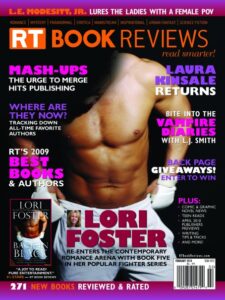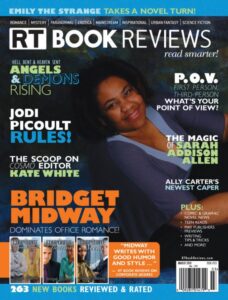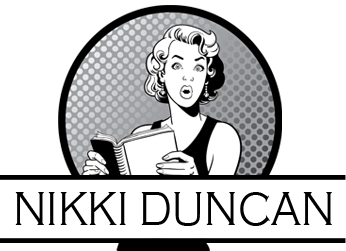Expect Excellence in Your Agent Relationship, Part 1

Finding an agent, let alone the perfect agent, can seem like a daunting undertaking. It doesn’t have to be. Over the next few months, I will break down the highpoints you’ll need to prepare yourself for the journey. To make sure you have the information you need, I’ve interviewed agents Robert Gottlieb, Deidre Knight, Elaine Spencer and Holly Root, as well as bestselling authors Brenda Novak, Allison Brennan, Cait London and Laura Resnick.
This month we’ll focus on the initial research that helps you know who a good fit for your work may be as well as increase your odds of success, as well as how to handle queries and following up on submissions. Verifying that an agent is the right fit for you and your career will most likely come after you receive an offer for representation, but you can take early steps to maximize your search.
Research ensures that you are targeting an agent who represents what you write. Research helps you identify which agent in an agency is looking for your genre/sub-genre. Knowing an agent’s preferences helps you better target and personalize your query. Research verifies how an agent prefers to be queried—an agency website is the most reliable source for this information.
So where do you do your research on an agent? I asked Holly Root that question. Her advice is to “Definitely take advantage of agent blogs and Twitter feeds... you can get a sense of someone as a person as well as their professional taste. Be careful, though, about other social media, particularly anything that requires an industry professional to "approve" of you...But anything that's public can inform your choices. Also, don't completely overlook agents who don't participate in blogging, twittering, what have you. It's just not some people's style.”
Some resources for finding out what agents are looking for or what books they’ve recently sold are:
- Publisher’s Marketplace has a daily lunch that you can subscribe to for free.
- A Google search pinpoints things like where they’ve guest blogged or blogged as well as sometimes giving you personal insights into that person. The first time I was going to meet Holly for an interview, I googled her and found out she’d just gotten married. Now, that’s not going to get me representation. My story still has to be what she represents, it has to fit in her list, and it has to WOW her, but a simple “Congratulations on your recent wedding” shows consideration and that you’ve done your homework.
- Agency websites give you specifics on what agents want and how to query them. You can sometimes find a list of clients on their websites. Check out the clients.
- Client websites and blogs give you a sense of the kind of people who are happy with the agent you’re considering. You may also be able to see if you fit in with the type of clients that agent represents.
- Romance Writers of America has a list of agents that represent romance books as well as their guidelines and what they are looking for. If you write romance, this is a great place to start making your list.
- Writer groups online or local to you are super resources. In these settings you have the chance to talk with people who know the agents you’re looking into. Firsthand information is a great way of knowing how you might fit in with someone. Ask questions and get impressions of the agents from other people.
“Agents create their submission guidelines for a reason,” Deidre Knight of The Knight Agency says. “...We don’t maintain guidelines to make life harder...but simply because of the huge volume of queries we receive.” By following agency guidelines, you enable agents to “...show respect to those querying the agency...” By authors following guidelines, agents are better able to respond in a timely manner.
Deidre went on to share that despite the clear submission guidelines on her agency website, a vast number of authors fail to adhere to those guidelines. They search out personal emails on the net. While that will more often than not result in a rejection, it potentially creates other problems for the author. “It can signal someone who might also be a problematic client, the kind who wants to do things ‘their own way,’” Deidre explains. That’s only one issue. Given that agencies tend to receive fifty queries or more a day, failure to follow guidelines does not impress or wear down the queried agent. “It only makes us leery!” Deidre says.
If an agent does not have a website or blog, make your best attempt to find their submission preferences. “Err on the side of hitting send,” Holly says. Agents do the job they do because they love books, and they love finding new talent. Most feel somewhat honored when you select them as a possible match for your work.
Holly also asks that you keep in mind that so much of what agents respond to is based on factors that the querying author is not privy to. For example, the agent in question may have just signed a book in that genre, so they have less room on their list in that area right now. There may be nothing wrong with your manuscript. Don’t assume that because an agent passed on your story that they’re missing out. Don’t retaliate or become abusive toward them. Accept that your story was not the right fit for that person at that time.
Now, to address the timeline question of how long is fair and when to follow up. Most agents will tell you their response times, either on their website or when they request material. Elaine Spencer, with The Knight Agency, asks that people give her a one-month buffer, but she encourages authors to follow up. “Trust me,” Elaine says, “in many instances we're fully aware that we're over the limit on our stated timelines, but life is just too busy. If an author follows up it’s the kick in the butt I need to move it to the top of my stack. And there is always the chance of a spam filter or some other misplaced entry.”
Elaine adds, “When an author follows up within a reasonable timeframe after submitting, it tells me that they're interested in their career and dedicated to the details. I don't think anyone should ever be left waiting forever –”
If an agency has not stated a response time, Holly says that it’s perfectly kosher to check in at 8 weeks.
Agents have the right to expect, even demand, excellence from authors. Authors have the same right to expect, even demand, excellence from agents. The key is to always approach a situation professionally. Authors, keep in mind that you are not the only person querying an agent. Stand out by respecting their time and their guidelines.
Published January 2010 in Romantic Times magazine.
Expect Excellence in Your Agent Relationship Part 2: After the offer for representation comes in

As kids, we learned STOP, DROP and ROLL. Now, as writers we have a new one that we need to learn. SIT, and I'm not talking about applying your rear to the chair and writing. STOP, INVESTIGATE and THINK. The research that we talked about last month is great for narrowing our agent list to our top picks, but it doesn't ensure we've picked the right agents for us.
It's an exciting thrill when an agent calls or emails you with an offer for representation. Your heart jumps and a plethora of thrilling emotions storm through you and jeopardize your ability to think. Remember to SIT.
STOP. Tell that agent how excited you are that they loved your work and want to represent you. Thank them for their offer and ask them for a day or two to think on it. Don't worry. They aren't going to rescind their offer because you want to make sure you're making the right decision for you and your career. Just the opposite. They'll respect you for it.
INVESTIGATE. Pull out that list of questions you've put together for when this moment comes and ask them. Listen to what the agent's answers and how they answer. Take notes during this conversation, because with the thrill of the moment you may just forget things. Ask the agent for a day or two to consider the offer. Email people that know them and have worked with them to get a feel for their working style.
THINK. Take a day or two to think about their offer. Take this time to notify any other agents who may have your work and let them know you've had an offer for representation.
Last month, we talked about some places to get information on agents, but we didn't get into the questions that you should ask when the time comes. In some cases, you will have met an agent several times and are starting out with an idea of how you click together. Sometimes you'll be flying blind in regard to personal interactions and so the perceptions and feedback of other writers will be important.
During that initial phone call, or a follow up phone call with the agent, if you must take some time to compose yourself, that is the time to pay close attention to how you interact with each other. Ask the agent how they see your relationship working and what they see happening for you in regard to your career. Does their vision line up with yours? How involved are they going to be in how you are branded when they represent your work to editors? What houses do they have in mind for you? They may seem like big questions to ask so early on, but you need to know deep in your gut that you are selecting the right agent to champion your work. If you want someone to be with you and help you build your career, then you need to be certain they are looking for the same thing.
Holly Root told me "It's my goal to work with people who are kind, professional, and motivated, and I do my best to give back the same qualities in return."
Do your homework to verify that what an agent is telling you is accurate. Think about how other people talk about them whether it's current or past clients. Everyone is going to have an opinion. It's up to you to consider the varied angles and do what you can to start out on the right foot for a well-balanced working relationship.
If you haven't already researched and considered how the agency operates, do it now. What makes them different from the other agents/agencies? You need to look at what expenses they pass on to you and how they pass them on. Some agents limit expenses by the year and others do it by the book. You need to know which. Also, you should know how the agent handles the accounting of your royalties. After your publisher sends the check to the agent, the agent sends you a check, minus their commission (which you need to also know), but does the agency keep a separate bank account for agency revenues and author funds? Be sure to also familiarize yourself with how they handle tax activities and what format they send you what information in. It's heavy stuff to know, but keeping yourself apprised of the financial mechanics of the agency can prevent a lot of headaches, confusion, and trouble down the line.
"I consider my career a partnership in many way—my agent and I need to be on the same page at all times. Why? Because I need her fighting for me every step of the way," said Allison Brennan.
As a writer, we need to know how much of our career we're handing over to an agent. We need to know that they have our best interests at heart when they go into negotiations with us, and we need to feel confident that they are representing the best image possible to editors. Let's face it, the agent we select reflects on us and it will impact our careers.
In an effort of making sure you're selecting the right agent, ask how they handle contract negotiations and what their viewpoint is on foreign and audio rights. Are they working with you on a book-by-book basis or do they see your relationship as more long term?
Laura Resnick "preferred to treat my agents as advisors, rather than as bosses, managers, or gurus."
You stand a better chance of having a successful agent/author relationship if you SIT. Whether you want an agent to basically decide for you or an agent to guide and advise you, you'll know if you're making the right decision if you ask questions. Know what you want an agent to do for you and that they are comfortable working with you that way. Be assured that you can handle disagreements with your agent in a professional manner without damaging the relationship, and that they can do the same.
Cait London advised that "if a writer prefers to leave total control to an agent, that is fine and some writers like that... The backside of letting someone else make all your decisions, (major decisions in your career) is that if you are unhappy with the results, it is basically your fault for not investing more time and energy into the decision."
Next month we'll tackle the agent relationship as it pertains to contract negotiations and beyond, but I would like to leave you with this parting thought from Robert Gottlieb. "Hold professional people to a high standard. Know the business you're in, ask questions, and have confidence in people representing you. If at any time that confidence wavers, then move on to something that works better for you. Staying in a non-productive relationship will only damage your career."
Published February 2010 in Romantic Times magazine.
Expect Excellence in Your Agent Relationship Part 3: Contract Negotiation and More

"I have a tremendous respect for an author's work," Robert Gottlieb, Chairman of Trident Media Group, says. "For me, I view every detail as another opportunity to build an author." As an author, you should have the same outlook. You should expect the same from an agent.
While there is no one measuring apparatus for success, it is a product of more than one person’s efforts. Success is a product of the combined insight, experience, and attitude of everyone involved, often beginning with you and your agent.
Agents Robert Gottlieb and Holly Root and bestselling authors Brenda Novak, Allison Brennan, Cait London, and Laura Resnick shared insights into some of the more in-depth aspects of the business from foreign rights, to using numbers in contract negotiations, and more.
Foreign rights are opportunities to build an author, and Gottlieb says, "by sweeping the rights aside and letting them go, we're letting possible opportunities pass for our authors." Foreign rights and ancillary rights, such as movie and audio rights, can be confusing, but you need at least a basic understanding of them. Some agents are after the highest advance possible from a book deal and are quickly ready to move on to the next deal. This could mean a willingness to sweep aside foreign rights for the sake of an easy or quick contract negotiation, which may not be in your best interest. The decision to keep or release foreign rights should be considered on a case-by-case basis, taking into account what the publisher is offering and the best assessment of the work's potential to travel.
Holly Root from the Waxman Agency explains that they never let go of movie rights for single title projects. As for audio rights, Root says they "are sold very rarely for mass market titles because the price point differential is so great (who would buy a $35 audio when the book is $6?)." However, Root continues, "for authors at or about to break into the top tier of mass market publishing, it's worth a careful consideration on who retains those [rights]."
Ask prospective agents offering representation what their stance is on foreign and ancillary rights. Do they handle such rights in house, or do they use a third party? In some cases, a third party can negotiate a better deal than the agent. Make sure you understand why they work the way they do.
Numbers are another aspect you need to know about. Numbers include print runs, copies shipped, early sales, and sell-through.
~ Print run is what it sounds like—the number of books printed by the publisher and is often based on orders placed by booksellers (the people that get the books into the stores).
~ Copies shipped are the number of books from the print run that were actually shipped to booksellers.
~ Early sales numbers are based on pre-orders, like those from online retailers such as Amazon, Barnes and Noble, and Borders.
~ Sell-through refers to the number of books that are sold off the shelves. Different publishers view sell-through rates differently as a barometer of success. Sell-through is also viewed differently based on mass market, trade, and hardback.
An agent should know what is considered "good" for the different media.
Numbers for a category (Harlequin/Silhouette) author are not necessarily as important as they are for a single title author. The same number of books is generally printed for each book in a line each month. What does matter for category authors is where they rank in the top or bottom half of sales.
Agents often understand what your numbers mean in the marketplace and can help you get and decipher them. While some publishers want to hold on to your numbers, telling you only that they are satisfied with your performance, it's important for you to have the information. According to Holly, good information is hard to come by (mostly due to booksellers considering their POS data proprietary), but "with a few exceptions, publishers will share information they have with an agent who asks in a professional and appropriate manner."
"If you don't know your numbers," says Allison Brennan, New York Times Bestselling Author, "I don't see how you can go back into negotiations. You need to know how many books you sold and where they were sold. What stores are you in? Are your numbers increasing or decreasing and at what venues?"
Another aspect of publishing to bear in mind is the shifting market, as well as in specific genres. Agents need to understand these shifts. Laura Resnick (Laura Leone) feels that rapidly evolving technology and changing consumer habits will affect the market in the coming years. In her opinion, this means challenges and changes rather than unrelieved doom, gloom, and destruction.
Gottlieb feels that every new development of technology has become another layer, giving consumers more options. E-books are one layer. They are where audio books were twenty years ago, but as publishers move in the direction of releasing books in e-format as well as paper, Robert cautions authors to be careful not to jump in with both feet to the point it injures print sales. Discuss the pros and cons with your agent.
Having a solid handle on your standing in business, the marketplace, and where you fit in it is about more than foreign rights and numbers. If you struggle with knowing where you fit, a good agent can help.
In regard to knowing your standing, Brenda Novak said, "I maintain control of my career, the quality of my books, and my diabetes fundraiser because no one in the world cares more about these things than I do. My name is associated with all three, and I want anyone who comes into contact with me or my name to develop a positive association with it. I can't leave that up to others."
It's your name on the line. Think about how you want it to be perceived and be certain the agent you choose fits your image and keeps your goals in mind when representing you. "Writing, while creative, is a business and an industry," said Cait London. A high proportion of writers are happy to leave time-consuming decisions to someone else like their agent. If that works for you, fine. Cait reminds you "if you're unhappy with the results, consider your time investment that went into decisions." If you're truly unhappy, speak up or your agent will not know there is a problem.
All agents should be vetted when they're being considered or recommended for representation. And yes, you are the one considering them. It's important to have an agent that sees eye-to-eye with you. The only way to ensure that you are making the correct business match for you is to ask questions. Don't think you have to sign with the first agent offering representation, and don't be afraid to ask tough questions.
This is your career. Set a standard that you are comfortable with for yourself and live up to it. Expect the same standard from your industry relationships.
Published March 2010 in Romantic Times magazine.
